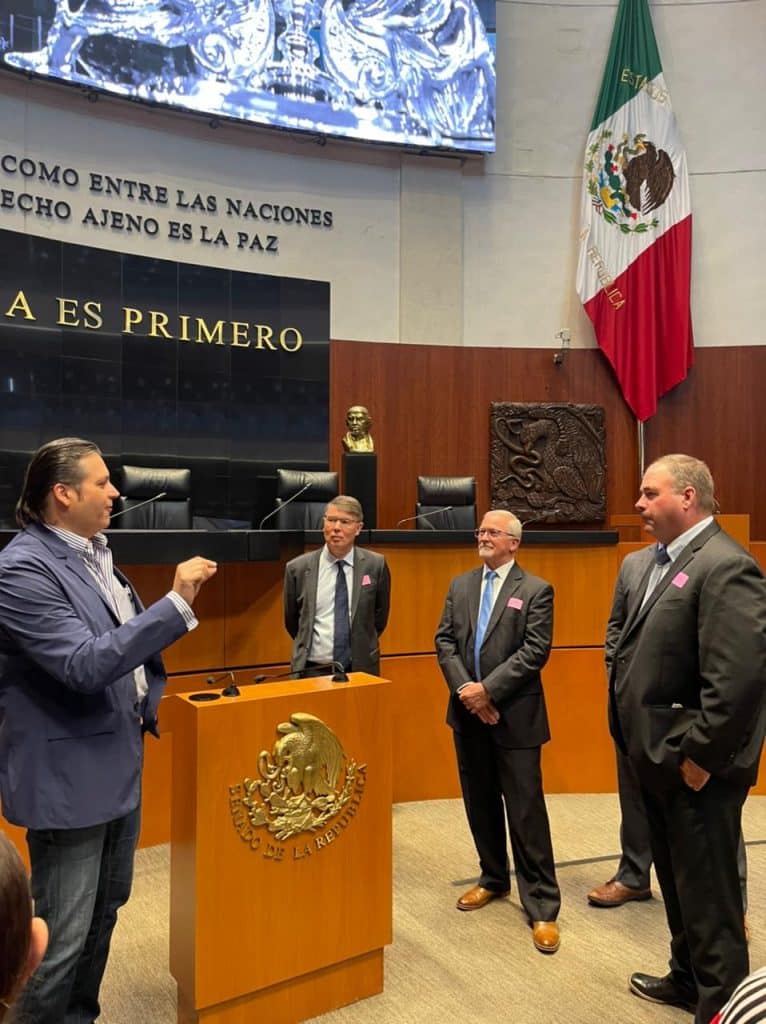A MAIZALL delegation visited Mexico last week, where they met with government representatives and industry stakeholders to discuss the country’s 2020 presidential decree that intends to ban the use of genetically modified (GM) corn for human consumption by 2024. The delegation also raised concerns about the likely impact of the lack of authorizations by Mexico of new GM corn events for import since May 2018.
MAIZALL, the international alliance of maize growers, includes members from Abramilho in Brazil, MAIZAR in Argentina and the National Corn Growers Association (NCGA) and the U.S. Grains Council (USGC) in the United States. Farmers from these countries, which produce 50 percent of the world’s corn and are responsible for 81 percent of corn exports, compete in the global marketplace but work together to address common international market access issues.
“MAIZALL recognizes the cultural and historical importance of maize in Mexico,” said MAIZALL President Federico Zerboni. “It may indeed want to maintain its decision to only grow non-GM maize for its own reasons, but it was important for our growers to outline the GM adoption rates (more than 95 percent) in our countries and the many economic, social and environmental benefits of GMO cultivation.”
Mexico’s annual import of 17 million metric tons (669,256,000 bushels) of GM corn could be jeopardized by the combination of the presidential decree and the lack of authorizations of new GM events for import. Since it is very unlikely that such volumes of non-GM corn will be available in international markets in 2024, Mexico’s current policy will lead to food insecurity and affordability of many of its staple foods, such as corn tortillas.
“The trading relationship between our countries and Mexico continues to be positive for grains and grain products, and MAIZALL works closely with the grain, feed and livestock industries in Mexico that value the commodities we provide,” Zerboni said. “But implementing the ban and withholding the authorization of new GM events for imports would be detrimental to Mexico’s food security – making more non-GM supplies harder to find – and counterproductive to food prices for Mexican consumers and the competitiveness of Mexico’s livestock industry. The pandemic and the recent Russian invasion of Ukraine have demonstrated that feed security and affordable food cannot be taken for granted.”
MAIZALL and its members will continue to work closely with the Mexican grain, feed and livestock industries, and with the Mexican authorities to work toward solutions to avoid the negative impact of its current policy.
“The U.S. Grains Council through MAIZALL and our office in Mexico City continue to engage with industry and government officials regarding the potential consequences of their biotech decree,” said Andrew Brandt, USGC director of trade policy. “We remain hopeful that as we provide further information we can prevent massive disruptions to the corn trade.”
About The U.S. Grains Council
The U.S. Grains Council develops export markets for U.S. barley, corn, sorghum and related products including distiller’s dried grains with solubles (DDGS) and ethanol. With full-time presence in 28 locations, the Council operates programs in more than 50 countries and the European Union. The Council believes exports are vital to global economic development and to U.S. agriculture’s profitability. Detailed information about the Council and its programs is online at www.grains.org.

